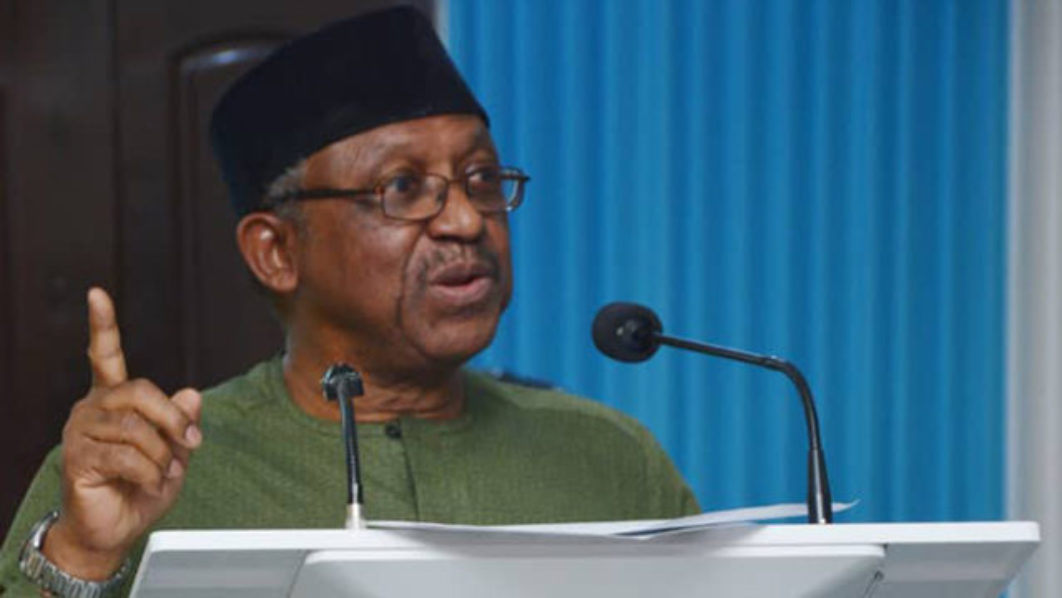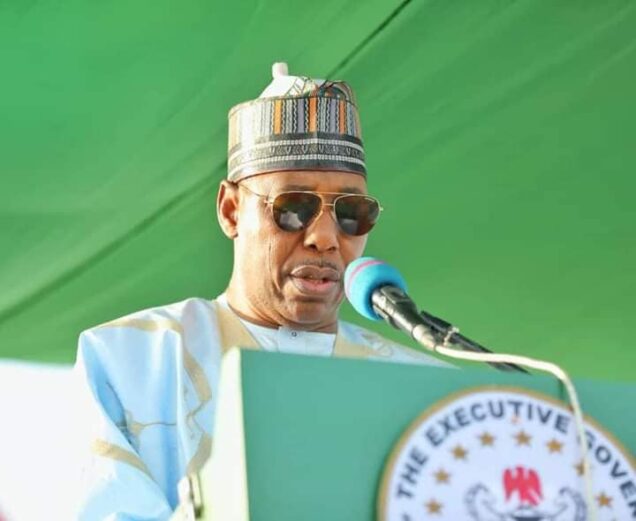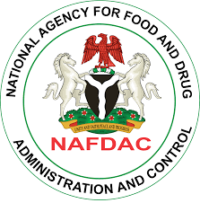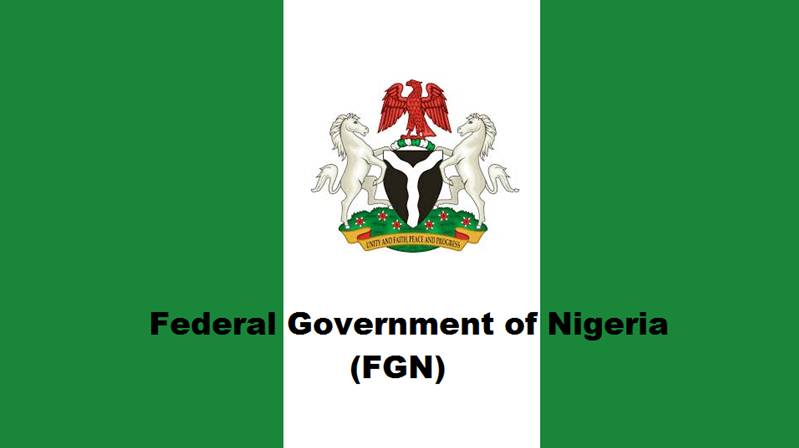Headlines
Ehanire: Malaria prevalence in Nigeria on decline

Nigeria recorded a slight decrease in malaria prevalence, from 23 per cent in 2018 to 22 per cent in 2021, Minister of Health, Dr Osagie Ehanire has said.
Enahire made this known at the Official Launch and Dissemination of the National Malaria Indicator Survey (NMiS) Report and The National Advocacy Communication and Social Mobilization (ACSM) Strategy and Implementation Guide in Abuja.
The News Agency of Nigeria(NAN), reports that the National Malaria Elimination Programmes (NMEP), organised the dissemination of the ACSM strategy and implementation guide (2021-2025), in collaboration with the National Population Commission (NPC).
Ehanire said, while this may not appear significant at the national level, at the sub-national substantial gains have been observed in several states.
The minister noted that malaria was a leading cause of mortality and morbidity in Nigeria, with young children and pregnant women disproportionately affected.
Furthermore, he said the disease accounts for 60 per cent of outpatient visits to health facilities, 30 per cent of childhood deaths, 11 per cent of maternal death (4,500 die yearly), and 25 per cent of deaths in infants (children aged 1 year).
He said, the 2021 World Malaria Report from the World Health Organisation showed that nine to 10 persons die every hour due to malaria or malaria-related issues in Nigeria and that the country contributes 27 per cent to the global malaria burden and 32% to malaria deaths globally.
Also, Ehanire announced that children under five years of age remained the most vulnerable group affected by malaria accounting for 67 per cent of all malaria deaths.
He also noted that it was pertinent to note that the Government of the Federal Republic of Nigeria and its partners had made consistent and concerted efforts over the years in providing resources towards the elimination of malaria in the country, and this had resulted in millions of lives being saved:
“The results of the 2021 NMIS show a further decline in the national prevalence of malaria to 22 per cent from 23 per cent in 2018, and 42 per cent in 2010.
“We are seeing gains being sustained in getting the general population to adopt key preventive measures. 56 per cent of households own at least one Insecticide Treated Nets (ITN) while 36 per cent of household members, 41 per cent of children under five, and 50 per cent of pregnant women slept under an ITN the night before the survey.
“This underscores the importance of access, and therefore our drive to use all means including rolling mass campaigns to reach the teaming populations of Nigeria with nets”, Ehanire said.
READ ALSO: AIDS Day: No end to infection by 2030 as 1.8m Nigerians live with HIV
Also speaking, Dr Perpetua Umomoibhi, NMiS in the health ministry said that the country has implemented four National Malaria Strategic Plans (NMSPs) and is presently implementing the fifth NMSP, which covers the period 2021 to 2025.
“The 2021to 2025 NMSP aims to achieve a parasite prevalence of less than 10 per cent and reduce mortality attributable to malaria to less than 50 deaths per 1,000 live births by 2025.
“The need to measure the impact of these strategic plans requires the availability of data from routine sources, principally the District Health Information System (DHIS), operations research, and surveys, particularly the Nigeria Malaria Indicator Survey (NMIS),” she explained.
Umomoibhi said that the 2021 NMIS was the third malaria indicator survey conducted in the country, with the first in 2010 and the second in 2015.
“The sample size for the 2021 NMIS was much larger than in previous surveys, with a total of 568 clusters covered across the country (195 in urban areas and 373 in rural areas). The 2010 and 2015 surveys covered 240 and 333 clusters, respectively,” she explained.
She said some indicators showed poor performance relative to the results of previous surveys. The impact of COVID-19 may have clouded some of the gains previously recorded
Meanwhile, the Permanent Secretary, ministry of health, Mr Mahmuda Mamman, commended all stakeholders involved in conducting the 2021 NMIS and producing the report as well as those that developed the ACSM strategy and implementation guide.
Mamman, who was represented by Dr Morenike Alex-Okoh, Director Public Health, said that the ministry has continued to make efforts to reposition the health sector into one, that is responsive to the needs of citizens.
NAN reports that the funding for the 2021 NMIS was provided by the United States Agency for International Development (USAID) and the Global Fund.
ICF provided technical assistance through The DHS Programme, a USAID-funded project that provides support and technical assistance in the implementation of population and health surveys in countries worldwide.
Headlines
Noble Ladies Champion Women’s Financial Independence at Grand Inauguration in Abuja

Women from diverse backgrounds across Nigeria and beyond gathered at the Art and Culture Auditorium, Abuja, for the inauguration and convention of the Noble Ladies Association. The event, led by the association’s Founder and “visionary and polished Queen Mother,” Mrs. Margaret Chigozie Mkpuma, was a colourful display of feminine elegance, empowerment, and ambition.
The highly anticipated gathering, attended by over 700 members and counting, reflected the association’s mission to help women realise their potential while shifting mindsets away from dependency and over-glamorization of the ‘white collar job.’ According to the group, progress can be better achieved through innovation and creativity. “When a woman is able to earn and blossom on her own she has no reason to look at herself as a second fiddle,” the association stated.
One of the association’s standout initiatives is its women-only investment platform, which currently offers a minimum entry of ₦100,000 with a return of ₦130,000 over 30 days—an interest rate of 30 percent. Some members invest as much as ₦1 million, enjoying the same return rate. Mrs. Mkpuma explained that the scheme focuses on women because “women bear the greater brunt of poverty” and the platform seeks “to offer equity in the absence of economic equality.”
Education is also central to the Noble Ladies’ mission, regardless of age. Their mantra, “start again from where you stopped,” encourages women to return to school or upgrade their skills at any stage in life. The association believes that financial stability is vital in protecting women from cultural practices that dispossess widows of their late husbands’ assets, while also enabling them to raise morally and socially grounded families.
Founded on the vision of enhancing women’s skills and achieving financial stability, the association rests on a value system that discourages pity and promotes purpose. “You have a purpose and you build on that purpose to achieve great potentials and emancipation,” Mrs. Mkpuma said.
A criminologist by training and entrepreneur by practice, she cautions against idleness while waiting for formal employment. “There are billions in the informal and non-formal sectors waiting to be made,” she said, rejecting the “new normal of begging” and urging people to “be more introspective to find their purpose in life and hold on to it.”
Mrs. Mkpuma’s management style keeps members actively engaged, focusing on vocational skills and training to prepare them for competitive markets. She is exploring “innovative integration of uncommon technologies” and is already in talks with international franchises to invest in Nigeria, with Noble Ladies as first beneficiaries.
The association’s core values include mutual respect, innovation, forward-thinking, equal opportunity, and financial emancipation. With plans underway to establish a secretariat in the heart of Abuja, the group aims to expand its impact.
The event drew high-profile guests, including former Inspector General of Police, Mike Okiro, and a host of VIPs, marking a significant milestone in the association’s drive for women’s empowerment.
Headlines
NEPZA, FCT agree to create world-class FTZ environment

The Nigeria Export Processing Zones Authority (NEPZA) has stepped in to resolve the dispute between the Federal Capital Territory Administration and the Abuja Technology Village (ATV), a licensed Free Trade Zone, over the potential revocation of the zone’s land title.
Dr. Olufemi Ogunyemi, the Managing Director of NEPZA, urged ATV operators and investors to withdraw the lawsuit filed against the FCT administration immediately to facilitate a roundtable negotiation.
Dr. Ogunyemi delivered the charge during a courtesy visit to the Minister of the Federal Capital Territory, Barrister Nyesom Wike, on Thursday in Abuja.
You will recall that the ATV operators responded to the revocation notice issued by the FCT administration with a lawsuit.
Dr. Ogunyemi stated that the continued support for the growth of the Free Trade Zones Scheme would benefit the nation’s economy and the FCT’s development, emphasizing that the FCT administration recognized the scheme’s potential to accelerate industrialisation.
Dr. Ogunyemi, also the Chief Executive Officer of NEPZA, expressed his delight at the steps taken by the FCT minister to expand the economic frontier of the FCT through the proposed Abuja City Walk (ACW) project.
Dr. Ogunyemi further explained that the Authority was preparing to assess all the 63 licensed Free Trade Zones across the country with the view to vetting their functionality and contributions to the nation’s Foreign Direct Investment and export drives.
“I have come to discuss with His Excellency, the Minister of the Federal Capital Territory on the importance of supporting the ATV to succeed while also promoting the development of the Abuja City Walk project. We must work together to achieve this for the good of our nation,” he said.
On his part, the FCT Minister reiterated his unflinching determination to work towards President Bola Ahmed Tinubu’s Renewed Hope Agenda by bringing FDI to the FCT.
“We must fulfil Mr. President’s promises regarding industrialization, trade, and investment. In this context, the FCT will collaborate with NEPZA to review the future of ATV, a zone that was sponsored and supported by the FCT administration,” Wike said.
Barrister Wike also said that efforts were underway to fast-track the industrialisation process of the territory with the construction of the Abuja City Walk.
The minister further said the Abuja City Walk project was planned to cover over 200 hectares in the Abuja Technology Village corridor along Airport Road.
According to him, the business ecosystem aimed to create a lively, mixed-use urban center with residential, commercial, retail, hospitality, medical, and institutional facilities.
He added that the ACW would turn out to be a high-definition and world-class project that would give this administration’s Renewed Hope Agenda true meaning in the North-Central Region of the country.
Barrister Wike also indicated his continued pursuit of land and property owners who failed to fulfil their obligations to the FCT in his determination to develop the territory.
Headlines
Benue IDPs block highway, demand return to ancestral homes

Vehicular movement along the Yelwata axis of the Benue–Nasarawa highway was brought to a standstill on Wednesday as Internally Displaced Persons, IDPs, staged a protest, demanding immediate return to their ancestral homes.
The protesters, believed to be victims of persistent attacks by suspected herdsmen, blocked both lanes of the busy highway for several hours, chanting “We want to go back home”.
The protest caused disruption, leaving hundreds of motorists and passengers stranded.
Eyewitnesses said the displaced persons, many of whom have spent years in overcrowded IDP camps, are expressing deep frustration over the government’s delay in restoring security to their communities.
“We have suffered enough. We want to return to our homes and farms,” one of the protesters told reporters at the scene.
Security personnel were reportedly deployed to monitor the situation and prevent any escalation, though tensions remained high as of press time.
Efforts to reach the Benue State Emergency Management Agency, SEMA, and other relevant authorities for comment were unsuccessful.
-

 Headlines4 years ago
Headlines4 years agoFacebook, Instagram Temporarily Allow Posts on Ukraine War Calling for Violence Against Invading Russians or Putin’s Death
-

 Headlines4 years ago
Headlines4 years agoNigeria, Other West African Countries Facing Worst Food Crisis in 10 Years, Aid Groups Say
-

 Foreign4 years ago
Foreign4 years agoNew York Consulate installs machines for 10-year passport
-

 News1 year ago
News1 year agoZero Trust Architecture in a Remote World: Securing the New Normal
-

 Entertainment3 years ago
Entertainment3 years agoPhyna emerges winner of Big Brother Naija Season 7
-

 Headlines2 years ago
Headlines2 years agoNigeria Customs modernisation project to check extortion of traders
-

 Entertainment2 years ago
Entertainment2 years agoMovie download platform, Netnaija, announces closure
-

 Economy2 years ago
Economy2 years agoWe generated N30.2 bn revenue in three months – Kano NCS Comptroller














